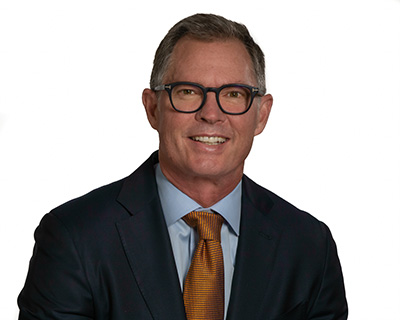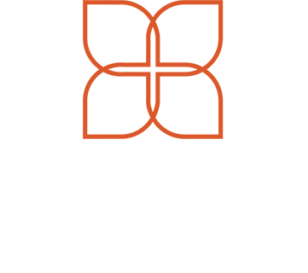How Are You Aging?

How Are You Aging?
Healthcare Workers, You’ve Been Holding Up the World During the Pandemic. Now Let’s Create New Ecosystems to Help the World Age Right—into the Future
By Phil Fogg, Founder and CEO of Marquis Companies
 Has anyone ever asked you, “How are you aging?” Not, “How are you doing?” or “What are you doing?” but “How are you aging?” Think about it—especially as we emerge from 18 months of a global pandemic.
Has anyone ever asked you, “How are you aging?” Not, “How are you doing?” or “What are you doing?” but “How are you aging?” Think about it—especially as we emerge from 18 months of a global pandemic.
Maybe, like me, you won’t like your answer.
I’m very intentional about my personal health and happiness. I have the good fortune of being surrounded by a large and supportive family (our sixth grandchild is expected this fall) and great group of friends; I exercise; I get more physicals than anyone I know; and I remain very engaged in my life-long hobbies that bring me joy.
I have a career that brings me deep meaning and purpose. I love seniors. My life-long commitment to this profession started at 12-years-old, when I began working the laundry at the senior living home my parents operated. As a young man, my favorite mentors were all in their seventies. Now, at 57-years-old, I lead Marquis Companies, with the sole mission of helping seniors age well. Marquis is in its 32nd year with 2nd 3rd, 4th, and even 5th generation LTC/PAC team members.
So, I was surprised by my response when someone recently asked me, “Phil, how are you aging these days?”
“Honestly, I’m not sure,” I said. “I think COVID may have shortened my life. I never got the virus, but at some point, when it’s my time to go, I’m convinced the stress of COVID will have played a role.
I can’t tell you how much that loss—everyone’s loss—is driving me to change our industry.
Let’s Fill the Potholes COVID Exposed–and Created
I’m not sure how long it will last, but right now the world still seems focused on the pandemic’s heavy hand on our lives over the last 18 months and how it will affect our future. Even young people are thinking about how they’ll travel on that road from infant, to youth, to young adult, to middle age to senior.
That road is riddled with potholes.
Many were created by COVID, others, the virus just exposed: inefficiencies, redundancies, poor quality, territorial silos, lack of data, inability or refusal to share data, lack of coordination and general fear and confusion over how to age well.
While we have the world’s attention, this is our minute to create new, data-driven healthcare ecosystems that deliver nothing less than:
- A clear road map of the healthcare continuum and how to age right
- A collaborative spirit of coordination and communication between patients, providers and payers
- Tailored, seamless, integrated care
- Better patient experiences and outcomes
- User friendly services
- Transparency
- Greater mobility
- Holistic care
- More and better home care
- Care that is constantly monitored and adjusted
- More affordable care.
And this isn’t just a victory for consumers. It’s a win for service providers and payers who will benefit from these integrated, data and value driven ecosystems that result in healthier and happier customers.
Can we really do all that?
In the next minute or so it takes you to read this, I hope to convince you that we can. The first step is joining this collaborative, educational think tank we’re launching today.
We call it, Aging Right.
First, Thank You for Holding Up the World!
If you’re reading this, you probably work somewhere on the healthcare continuum: insurance, hospital health systems, hospital liaisons, brokers, physicians, post-acute care and rehab, geriatric pharmacy, long term care, memory care, home health, clinical, palliative or hospice.
You’re part of a team of Titans holding up the world during the pandemic. Especially if you’re a front line worker, directly caring for patients, COVID was a material, physical, mental, and emotional wallop. I think of all of us in healthcare as veterans returning from war. We need rest. We need care. We need time to heal.
This may not be the smartest thing to say in an online blog, but I just couldn’t justify staying home during COVID, while the staff in our facilities, every day, walked into the epicenter of COVID.
So early on, I made a decision to ask my team if they’d join me and continue coming into the office–safely, carefully, but present together (other than those with underlying health risks and conditions). COVID was war. We had a war room. And fighting this virus together made us stronger, faster and smarter. Because of that we counted some big wins, like outpacing the national average in starting and finishing our vaccine clinics, with one of the country’s highest resident and staff vaccine participation rates. I’m so thankful to our entire team who showed up each day to battle in the arena.
So, how do we begin aging right?
Aging Right Requires Breaking Down Silos
If we’ve all felt like Atlas holding up the world, then Rick Miller is surely the tallest among us. At seven feet, Rick is a seventh generation Oregonian, a cancer survivor, a brilliant leader, past board chair of the American Healthcare Association, one of my business confidantes, and, as the CEO of Avamere, frankly, he’s one of my biggest competitors. (He also used to work for me, which I endlessly remind him of.)
Rick and I made a critical decision together two years ago.
We agreed that to truly change the healthcare process, providers all along the healthcare continuum need to start collaborating. We need to tear down some of the silos where we dwell, transparently name our challenges and see how we can help each other. So, we started recruiting some of the finest, like-minded health care professionals in insurance, managed care teams, nurses, doctors, home health providers, physicians and clinicians. We called ourselves the AgeRight PAC Network.
We sought people who are obsessed with innovating ways to deliver superior healthcare. We wanted to deliver care that was more personalized, onsite, data and technology driven and seamlessly integrated with all other services. We wanted better outcomes, better resident and patient experiences and more efficiencies––all while saving our payers’ and providers’ time and money.
How are we doing?
Here are three of many data-backed examples:
- Our PAC Network average readmission rate is 12.4% compared to the national readmission rate of 21.81% (data from 5/1/2020-4/30/2021).
- Our PAC Network average emergency department rate is 2.68% compared to the national rate of 11.29% (data from 5/1/2020 – 4/30/2021).
- Our PAC Network average CMS star rating is 3.5 for rural facilities and 4.2 for urban facilities.
In the next year, our focus is continuing to align our values and clinical goals with payer partners, to drive high quality outcomes.
Aging Right Requires Emergency Prep–Now–for the “Silver Tsunami”
We are not prepared for the Silver Tsunami barreling our way. In 2030 that tsunami hits land, when seniors (I’ll be one of them) will, for the first time in US history, comprise the country’s largest population.
This tsunami will wash over everyone—no matter your age.
Waves of older Americans will strain a smaller, younger labor and taxpayer pool; the aging infrastructure; the ability for us to comply with all the mandates and regulations that aren’t based on reality or the states’ ability to reimburse; the politicians who will feel pushed, like never before, by a powerful voting block; and, most troublesome, the people who care for our seniors. If that’s you, you know your numbers are dwindling and we must cultivate the senior care profession into a well-paying and desired career path.
Ruth Katz, LeadingAge Senior Vice President of Public Policy and Advocacy puts it this way: “Long term care financing is essential to make our systems work…but we need to have a vision about professionalizing jobs and creating a pipeline to fill these jobs. We need the whole continuum to look different and understand that people move around it.”
We need to think in a new way.
Aging Right Requires Thinking and Hiring Like a High-Tech Disruptor
Our healthcare industry needs to think like top-of-the-food-chain innovators.
Amazon CEO, Jeff Bezos, is known for a legendary obsession over his customers—all 200 million of them. Read snippets from his shareholders letters and you’ll get a crash course on how to succeed through integration.
From just one platform, Amazon connects you to Amazon Retail, Amazon Consumer Electronics, Amazon Private Label, Amazon Digital Content, Amazon Games, Amazon Luna Cloud Games, Amazon Drive Cloud Storage, Amazon Prime, Amazon Smile, Amazon Private Label, Amazon Web Services, and more.
Amazon doesn’t do timid. It doesn’t do small. We shouldn’t either. Providers and payers need to listen to our consumers and listen to each other. What do we each need to succeed? How can we collaborate to give our customers the services they want and need, when they want them, and how they want them?
Another disruptor, Reed Hastings is the creator of Netflix, which as you can imagine, has done particularly well during COVID. “We’re off to a faster start in growth than any year in our history, roughly from 160 million (subscribers) to 190 million. So, a lotta growth,” he recently told Lesley Stahl on CBS Sunday Morning.
Hasting’s life story would be a smash hit on streaming TV. He’s a vulnerable, thoughtful CEO who fought through many struggles. He once believed he was a horrible leader. But he kept adapting, reinventing and focusing on smart products and hiring the best people. Netflix now enjoys one of the highest approval ratings from its employees—and a 90% thumbs up for their CEO!
Our industry–especially in senior care where we desperately need more care providers—needs to better partner with government and educational institutions to increase workforce supply.
Aging Right Requires in-the-Present Innovation
Let me make a little confession. During the pandemic, some of our AgeRight PAC Network partners gathered, safely, over dinner. It was part therapy, part business strategy, part survival. We had some intensely vulnerable conversations. But it wasn’t all agonizing and commiserating. We didn’t have time. People’s lives were at risk. We picked ourselves up, prioritized our problems and innovated ways of navigating COVID’s constant twists and turns.
Here’s an example. The length of time it took to get COVID test results was incredibly frustrating. So we funded a saliva testing lab in Portland, Oregon, run by Dr. Zahra Mehdizadeh Kashi, Ph.D., H.C.L.D. Dr. Kashi is a world renowned molecular immunohematologist, an expert on transplants and, like us, knows the magic of collaboration.
Dr. Kashi ramped up her lab’s staff, and soon we were getting test results in just 24 hours. Facilities in other parts of the country were waiting up to seven days—an entire week—before residents and staff learned whether they had the virus.
From start to finish, the time it took for our PAC Network to identify the problem and find a way to get faster test results—one day.
We also funded a company that rapidly performs surface testing; we created a partnership to get early and abundant PPE; and we worked closely with national, state and regional officials so we were at the table to help set—or at least learn early on––policy and funding that affected our residents and staff.
Disruptive innovation and the ability–and the motivation–to move fast, is why so many senior living facilities are open again, with residents and staff smiling and laughing, enjoying group activities like dining, physical therapy, fun outings and visiting with their families.
Aging Right Requires Evolving into New Healthcare Ecosystems
I want to encourage you to read the masterfully researched and written McKinsey & Company article, “The Next Wave of Healthcare Innovation: The Evolution of Ecosystems.”
The authors describe ecosystems as “a set of capabilities and services that integrate value chain participants (customers, suppliers and platform and service providers) through a common commercial model and virtual data backbone (enabled by seamless data capture, management and exchange).”
What does that mean and why should we care?
These “ecosystems” are integrated, data-driven models of care, that ultimately create what we’ve all wanted for decades. They “create improved and efficient consumer and stakeholder experiences and solve significant pain points or inefficiencies.”
We’ve got a lot of pain in our healthcare continuum. But as the article optimistically points out, that’s just “fertile ground for innovation.” Tech titans are quietly pouring billions of dollars into healthcare innovation. They’re making deals in cloud technology where they hope to engage with consumers. They’re poised to take advantage of proposed regulations that will create more transparency and data sharing. That’s pretty exciting!
The article stresses that these ecosystems must be consumer centric, data driven and reliant on advanced analytics in order to lead us to actionable ideas and real solutions. For instance:
- Financial data help you finance the process of aging right.
- Social data help you stay connected and mobile.
- Home and wellness data help you track your daily living choices for improved health, including exercise and food.
- Provider generated data help you with your traditional healthcare.
- The data you personally generate and share with your providers help integrate home, near home and virtual services.
All this data and advanced analytics will, as the article says, “enable more coordinated care, and accelerate innovation…for example, Medicare-participating hospitals could automatically send HIPAA-compliant electronic notifications to in-network post acute care providers and other stakeholders when a patient’s status is updated.”
Imagine all the mistakes, inefficiencies, confusion and high costs we could avoid with that kind of communication!
Aging Right is a Test of Our Moral Character —No Matter Your Age
My wife and I try to instill the following to all our children: You will be judged by how you care about the most vulnerable in our world, especially seniors who have given so much to this society.
I urge you to talk to your kids or the other younger people in your life about seniors. If you’re a younger person in the healthcare profession, think of yourself, a few decades down the road (it goes fast!), and the kind of care you will want to age right.
A new survey mentioned in an article written by Lois Bowers in McKnight’s Senior Living, found that most seniors—unless they’re much older—don’t even want to be called seniors. Call them adults. Older adults. Mature adults. Professional golfer Phil Mickelson recently earned the distinction of being the “oldest player ever to win a major PGA tournament on the regular tour.” The television broadcast of his win played Neil Young’s song, “Old Man.” Old? Mickelson is 50!
Our idea of “old” has got to change. As they should, the baby boomer seniors will demand to be treated as part of the human community and not some population subset everyone else has to “deal with.” They’ll demand what we all want: to be recognized for our contributions and the right to age well with dignity and purpose.
In Conclusion
Please join us in creating these new ecosystems. Let’s seize this window of time when the world is still reflecting on the last 18 months. Let’s set aside rivalries and territories. Let’s amass our collective passions and chops for helping people stay healthy. Let’s start innovating like high-tech disruptors.
If any of this resonates with you, no matter your age, where you work in healthcare and whatever the level—we want to hear your challenges, frustrations and roadblocks. We want to hear how we can help your job or your industry work better. We want to help you personally age right.
Here’s how to start:
- Sign up here to receive the free Aging Right blog.
- Let me know here if you’d like to write a guest blog, be interviewed about your ideas or if you want to suggest a blog topic.
- Check out our AgeRight PAC Network here to see how our team is innovating.
In the next Aging Right blog, you’ll hear from my seven foot tall competitor, collaborator and co-creator of the AgeRight PAC Network, Rick Miller. You may be surprised to learn Rick has been packing his overnight bag and checking in at many of his senior care facilities. Pretending he’s one of his own residents, Rick has been reevaluating senior services and thinking a lot about how he’s been aging. I think you’ll agree his discoveries will help all of us age right.
And Finally—Hacks to Aging Right
Do you have some tips on how you’re aging right, in particular what helped you through the pandemic? We’d love to hear them.
Here are a few of mine:
- Water and snow skiing.
- Exercise – move every muscle.
- Music from AC/DC.
- Any book by Edward Rutherford, Bernard Cornwell or James Michener.
- Streaming The Good Place, Curb Your Enthusiasm and Ted Lasso.
- YouTube videos on Dr Atuhl Gawande. I borrow a lot from his book, Being Mortal.
- A quiet evening at a Cena Ristorante in Portland’s Sellwood district.
- A nice glass of cabernet wine.


